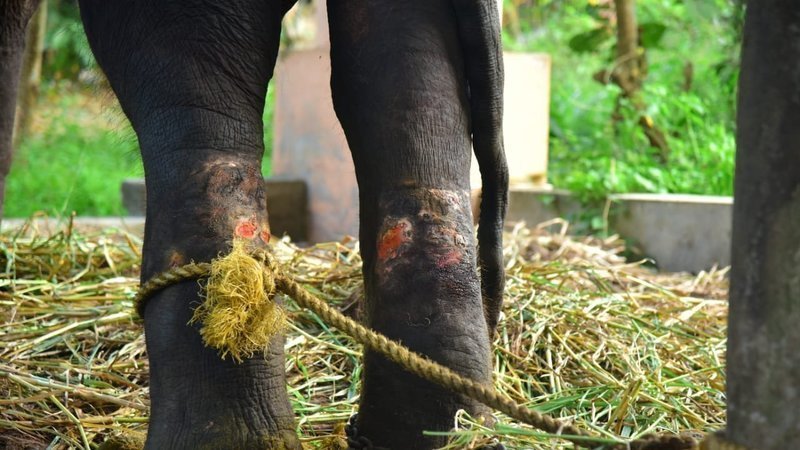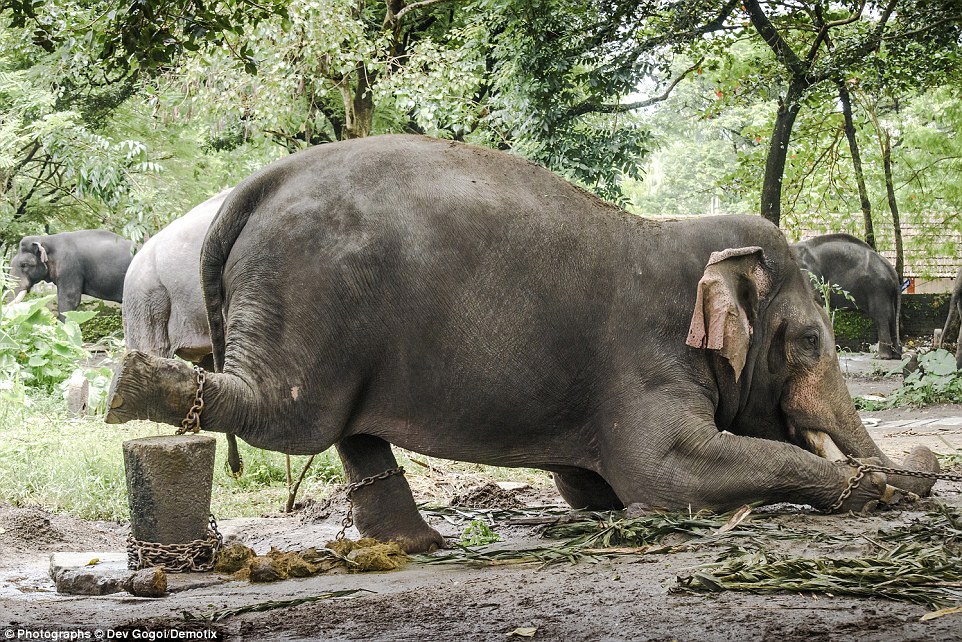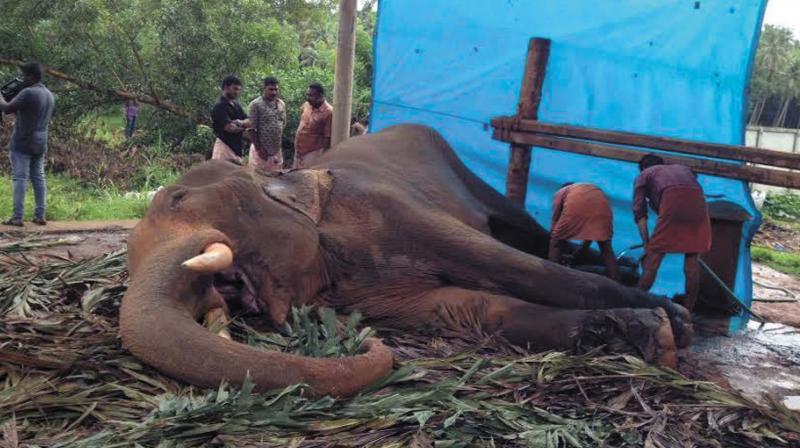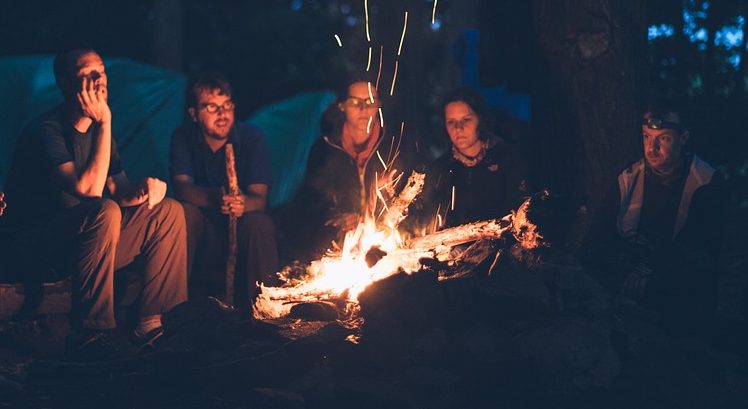Reasons We Don’t Support Elephant Parks & Rides and You Shouldn’t Either!!!
Although the ideal home for elephants is in the wild, many of them do not get to stay in the wild. A number of elephants have been saved from circuses, zoos or temples; they may have been stranded or harmed. It is not practical or safe for them to go back to the wild. So elephant parks and rescue centres come to the aid of such elephants. But since it becomes expensive for these centres to house, feed, and take care of elephants, the centres often supplement their earnings through visitors who come to see those elephants. It’s usually hard to find out if these spots that brand themselves as elephant parks or rescue centres are really as ethical as they claim to be.
Do not support or promote any park that offers elephant rides, unnatural performances or other sorts of unnatural behaviour intended for sightseers. Support genuine parks and rescue centres for those elephants that can’t go back in the wild. Breeding should take place only if they have suitable conditions to rear baby elephants. Once they grow up, they must be able to go into the semi-wild or wild conditions. But some centres continue to keep the elephants in small spaces. They hand them over to mahouts who use them in the wood logging business.
Know what these Parks Offer to the Tourists
Not every park that claims to be a sanctuary or a rescue centre is legal or ethical. Make sure to never visit an elephant park that advertises tricks, shows or paintings – and do not ever ride an elephant.
We encourage you to read reviews and see pictures online prior to visiting elephant parks. Maintain a strategic distance from any organization calling itself a “park” but is using chains and hooks for the elephants or lacks fundamental arrangements of shelter, water, and food.
The Capture, Taming and Abuse of Elephants
Human rights issues, environmental worries– there are many, yet one of the things that we need to be more vocal about is animal welfare. When you see animals in trouble, held in poor conditions or overly burdened with work, especially if it happens in the travel industry, do not hold back on raising your voice for the voiceless.
The barbarous procedure of training the elephants for elephant rides often goes unnoticed by travellers. In order to guarantee the safety of visitors, the young elephants go through a merciless and disturbing procedure. They tie the elephants firmly in tiny spaces to avoid any kind of movement. They beat the elephants severely and keep them from food and even water; this can keep going for a few days or even weeks. The aim to instil the fear of getting beaten so that the elephants will ‘behave’ around the visitors. That is extreme cruelty.
The demand for elephants in the tourism industry is increasing every year. So there is a need for capturing more and more elephants from the wild only to undergo mistreatment and abuse at the centres.
Elephants must always continue in their natural behaviour. They don’t dance, paint or play football naturally. So if you see an elephant doing any of those things, please know that it has gone through abusive training in order to be able to do that. It may be something that the visitors will enjoy. But it’s not something the elephants enjoy. So DO NOTÂ visit these spots where elephants perform unnatural things.
Educating Children about Animal Abuse!
Tragically, an elephant ride is still one of the most popular tourist activities in Asian countries. A study on 3,000 elephants by World Animal Protection in 2017 at tourist sites across India, Thailand, Nepal, Laos, Sri Lanka, and Cambodia, found that about 77% of the elephants were living in poor environments that were terribly cruel. In some of these habitats, they tie up the elephants when they are not performing; the elephants have little or zero interaction with other elephants, inadequate food, and stress-prompting environment. The study also discovered that there was a huge increase in the number of elephants present at the travel sites in these places.
Elephant issues have been a big concern. Having control over such a gigantic wild animal for such a long time and then using for rides or making them do unnatural things like kicking a football or painting pictures with their trunks, is never right. Learn about the captive elephant spots and educate your children too.
Put an emphasis on educating and imparting your knowledge. Give feedback to these parks. Please be careful not to hurt innocent animals just for the sake of entertainment.
Educate Other Tourists about Animal Abuse!
Individuals often imagine that a captive elephant has been domesticated, thus it is OK to have them under human control. However, they never receive training like a dog or a cat. Whether the elephants were born in the centres or were brought from the wild, they still have to undergo torture to accept human control. There is much proof that this procedure is astoundingly brutal.
Truly, there are a large number of elephants that have been saved from working in ventures like logging. But it was additionally discovered that the number of elephants being poached from the wild has expanded to feed the travel industry attraction for rides and fun. A few settings appear to attempt to surpass each other with fresh offerings that evidently give little respect to the elephants’ welfare. For example, an elephant tumbling off a tight rope would be so fatal for the elephant.
Do your duty by leaving your feedback and review to caution other travellers. It truly works – numerous camps have stopped offering elephant rides because of demands from travellers, and the media. Photographs and video recordings are particularly incredible tools. So make sure to have proof if possible. Share them on social media and review sites.
Inform your Travel Agent
In case you book via a tour agent, bring up your concerns to them – a lot of the companies don’t have any idea what is happening on the ground and only get to know about practices through visitors alerting them about it. This is the way by which you truly can have a positive effect. Furthermore, in case you see other explorers en route, alert them as well. Word of mouth is an amazing tool, especially in the travel industry. Do get the message out about the great spots you visit as well; they require all the support and help.
Even though numerous elephants live their whole lives as captives, many are being taken care of by associations that enable them to live in huge, natural and open areas with other elephants, with the right diet and care. Ethical Travel is the way to go for elephants living in captivity. There is not enough land to free them into nature.
Keeping captive elephants in open sanctuaries is the best choice. Most of them will never be freed, as they were habituated and can’t fight to survive in the wild. Volunteers are especially necessary at those sanctuaries – it requires a hell lot of work to take care of an elephant. Simply making sure they have enough food can take hours every day!
Remove Elephant Rides from your Wishlist
There is something fascinating about riding an elephant. Sitting on its back as the big animal gradually meanders down the trail in thick jungle, or along the beach. That is why it is common for people to have this on their wishlist.
However, in reality, riding elephants must be stopped. All animal welfare organizations are against riding elephants due to the abuse that the animals experience when they are instructed to carry travellers.
Why People still Ride Elephants?

Most people do it for fun and they have no idea about what happens behind the scenes. But if the same travellers see the videos of elephants being beaten with electric prods and hooks, most of them would no longer be willing to ride elephants just to have fun. Hopefully, they would strike it off from their wishlist.
Besides the cruelty, there are many reasons why individuals should skip riding an elephant and choose more sympathetic approaches to see or experience elephants.
What are the other things you can do if you do not want to ride elephants?
Many destinations around the world feature ethical sanctuaries. They enable you to feed and spend time with elephants without harming them. Boon Lott’s Elephant Sanctuary or Elephant Nature Park in Thailand are two ethical sites where the interaction with humans does not compromise the safety of elephants.
Get to know about Elephant Junction in Thekkady. Here, you can interact with elephants in ways that don’t hurt them. But sadly they offer elephant rides still!
Discourage Elephants for use in Temples, Churches or Political Party Processions
Boycott the use of elephants in religious places, processions and other occasions. In states like Kerala, Tamil Nadu, temple celebrations occur in the hottest time of the year. It has become normal for elephant caretakers to make their elephants stroll on the tarred, hot roads during these peak summer days. A full-stop is necessary.
Humans have no right to harm any animal, large or small, just for the sake of pleasure. Please be more aware of the training the elephants undergo for rides and other performances. It will help you understand why you shouldn’t encourage such activities. Interact with elephants, in way that both you and the elephant will enjoy. Kindness to animals is as important as kindness to fellow humans.



PC: Deccan Chronicle
Read PETA’s blog about why elephant rides are harmful to animals.
We, the team at Experience Kerala, do not encourage our clients to avail the elephant rides. Although these rides are legal in this part of the country, we believe it to be cruelty toward the animals.
Live & Let Live! Keep Travelling!






